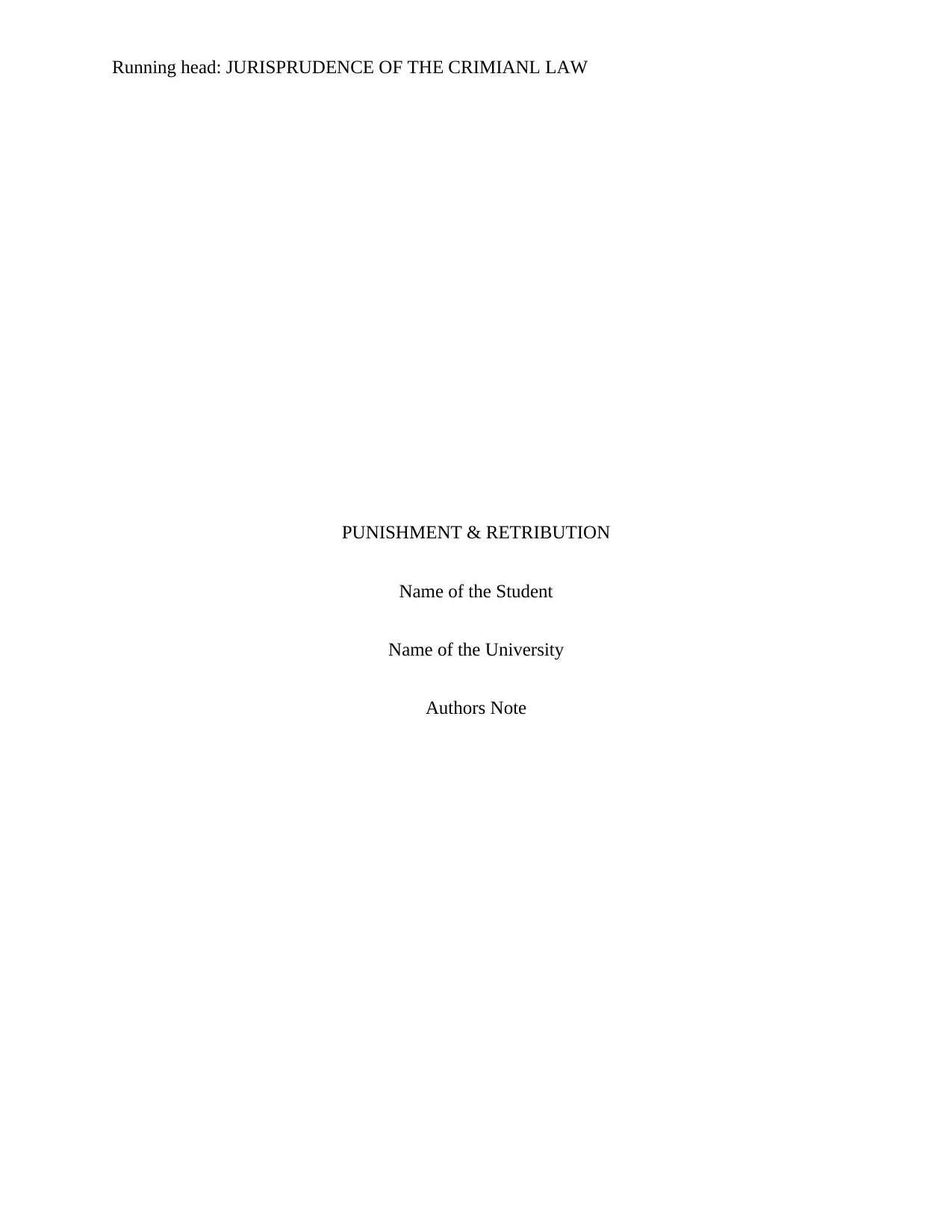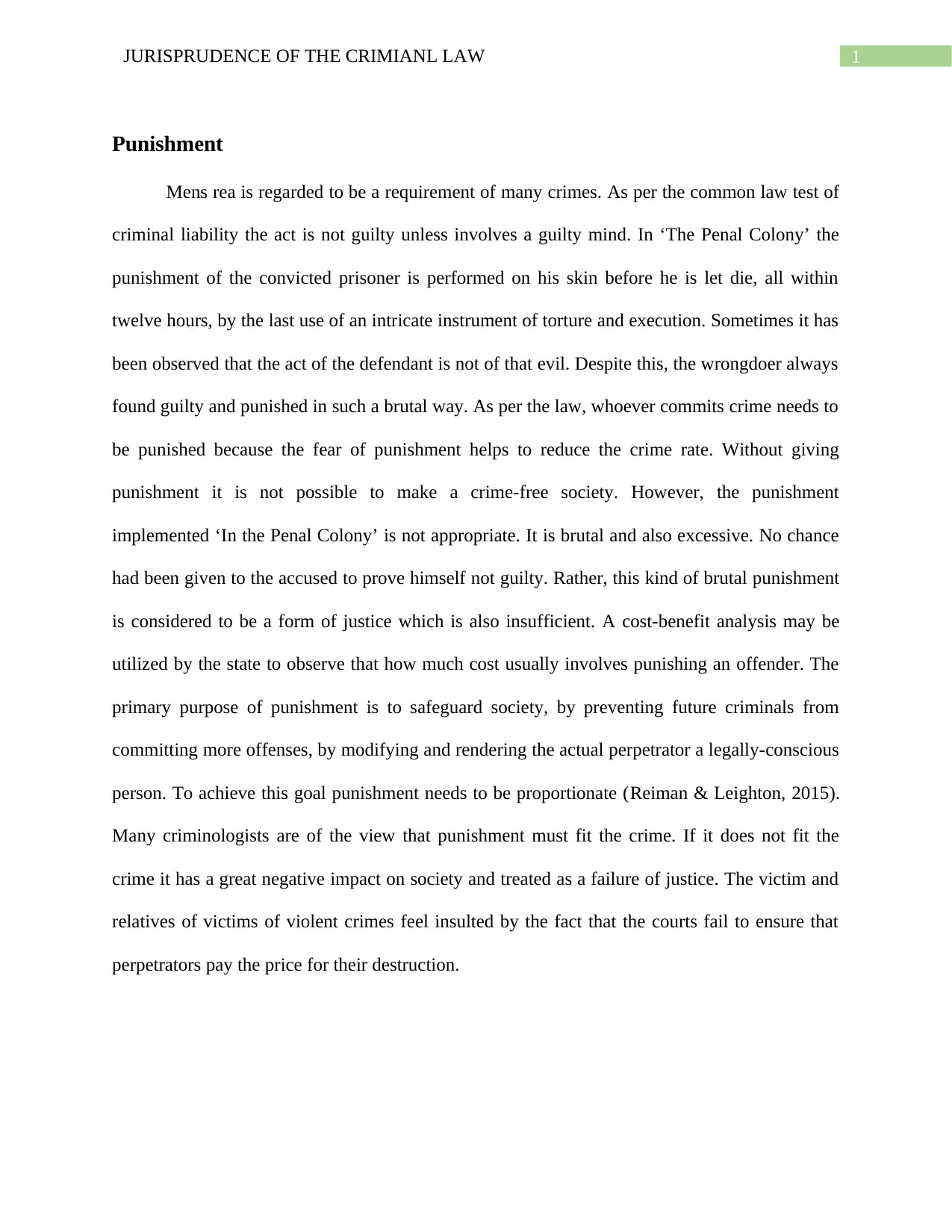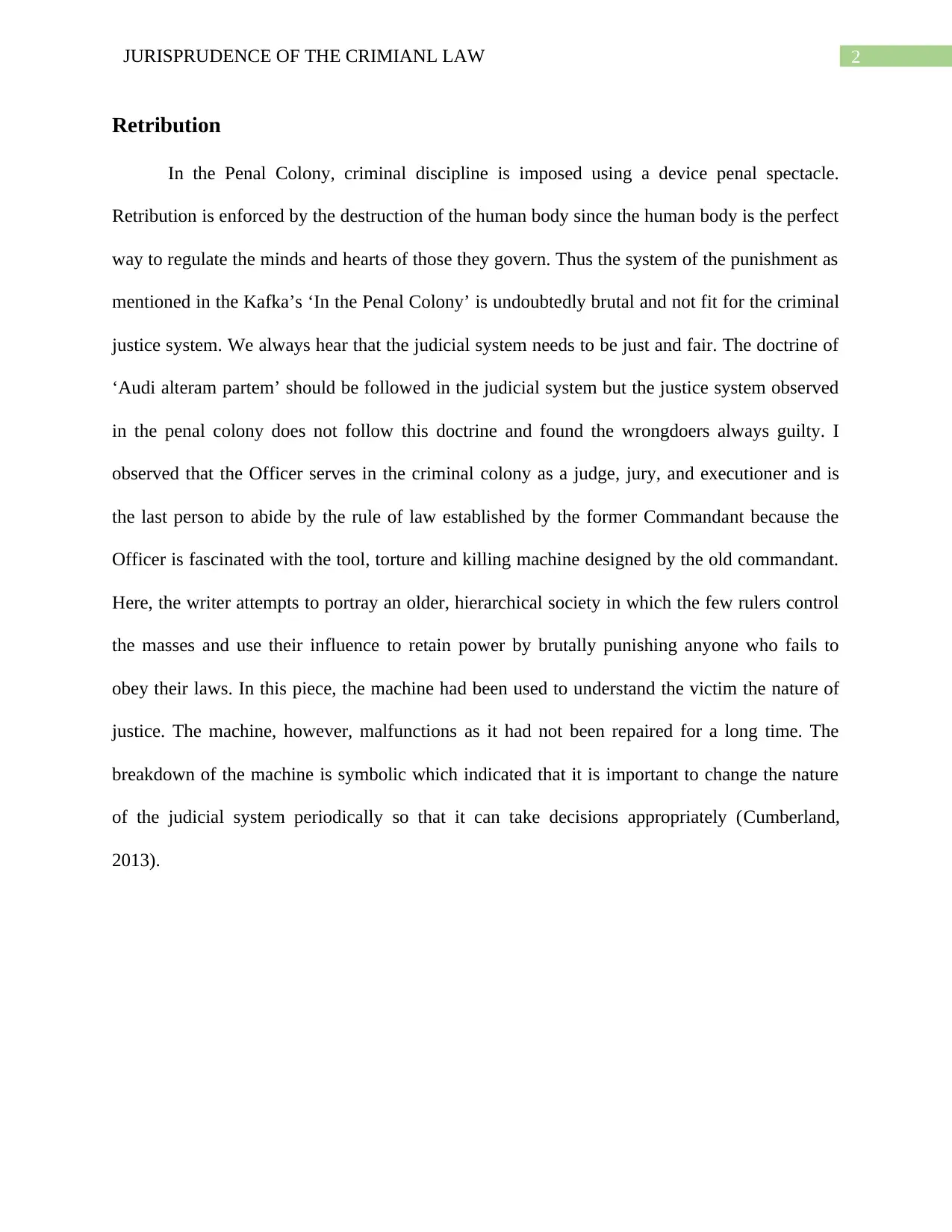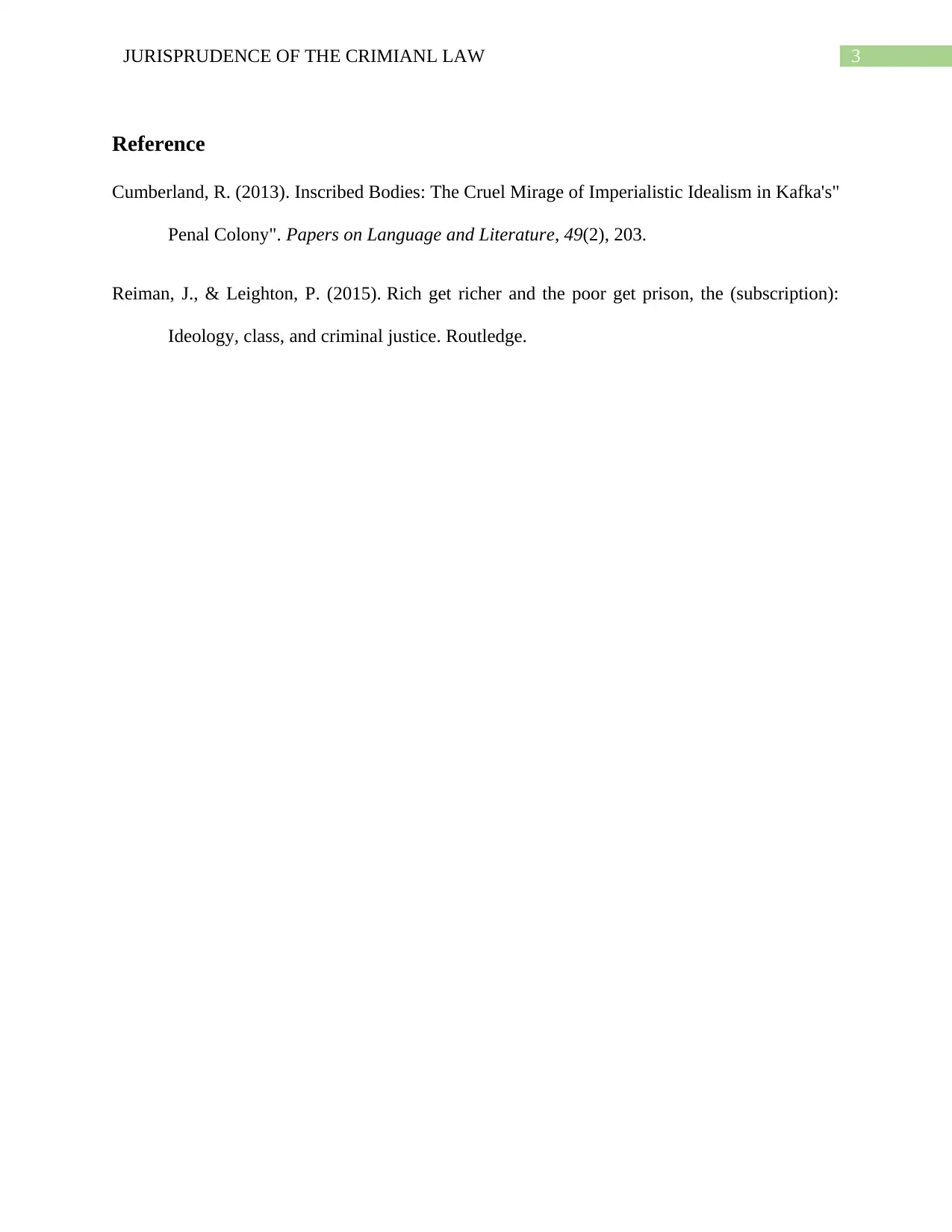Analysis of Criminal Law Jurisprudence: Punishment and Retribution
VerifiedAdded on 2022/08/24
|4
|728
|19
Essay
AI Summary
This essay examines the jurisprudence of criminal law, focusing on the concepts of punishment and retribution. It begins by discussing mens rea and the common law test of criminal liability, contrasting the brutal punishment depicted in Kafka's 'In the Penal Colony' with the principles of proportionate punishment. The essay explores the purpose of punishment in safeguarding society and preventing crime, emphasizing the importance of justice. It then analyzes the concept of retribution, highlighting the flaws in the criminal justice system. The essay also discusses the officer's role in the penal colony and the significance of the malfunctioning machine, which symbolizes the need for periodic changes in the judicial system. The essay references the works of Cumberland and Reiman & Leighton to support its arguments.
1 out of 4











![[object Object]](/_next/static/media/star-bottom.7253800d.svg)